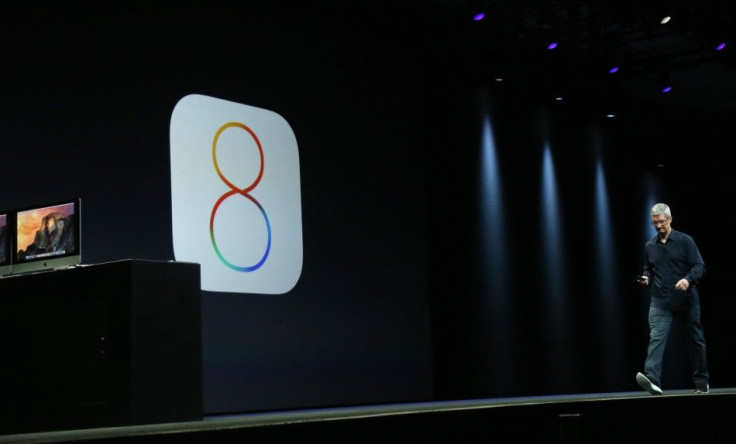iOS 8 vs Android 5.0 L: Data Encryption War, Anything Apple Offers Google Can Too

Apple's recent iCloud hacking controversy made privacy a more pressing concern for the tech companies. This has prompted Google and Apple to change their privacy policies. Both companies announced data encryption features on their primary mobile OS updates, iOS 8 and Android L, assuring users of their experience and content confidentiality. Which OS offers the better deal?
Apple's encryption policy even blocks the company from accessing the operating system installed. This means users can be guaranteed of their privacy as the provider itself will not have a backdoor to their devices. Previously, if law enforcement demands Apple to provide user data under warrant, user's data will be exposed inevitably. The iOS 8 will make that impossible. Apple wrote on its website: "On devices running iOS 8, your personal data such as photos, messages (including attachments), email, contacts, call history, iTunes content, notes, and reminders is placed under the protection of your passcode."
Apple has been addressing security concerns following the hacking incident linked to the iCloud drive. Apple also further explains how the encryption works under the iOS 8: "Unlike our competitors, Apple cannot bypass your passcode and therefore cannot access this data. So it's not technically feasible for us to respond to government warrants for the extraction of this data from devices in their possession running iOS 8."
According to Apple, when users set a passcode this will enable Data Protection. The iOS system provides arbitrary-length alphanumeric and four-digit passcode support. This strengthens the system and makes its resilient to attacks. If the attacker does not have the passcode then they cannot access the data. Apple integrated the passcode with the UID. It will require brute-force attempts to access the device and its content. The more attackers try to access data, the slower their attempt will turn out to be. Apple calibrates each iteration count resulting to each attempt lasting around 80 milliseconds. For instance, it will take an attacker 51⁄2 years to go through all the six-character alphanumeric passcode characters.
Google will be offering a similar feature with its upcoming Android L platform. The company has started adding encryption services in 2011. Android Jelly Bean came with encryption as a standard feature. Nonetheless, this was optional and not many people are aware of it. This time, Google will be including the encryption tool as an automatic feature on the Android L.
"As part of our next Android release, encryption will be enabled by default out of the box, so you won't even have to think about turning it on," Niki Christoff, Google's director of global communications and public affairs, confirmed.
"For over three years Android has offered encryption, and keys are not stored off of the device, so they cannot be shared with law enforcement." Christoff added.
Google may have to be faced with the rollout issues as pushing software updates is relatively slower in Android compared to iOS. Testing out Google's encryption feature may be challenging with varying results. Third party Android manufacturers tweak Google's source code to match their offerings which may deliver varying privacy experiences.
Android works with a multitude of versions which may be also difficult to upgrade to the current security features according to the Washington Post. The latest Android devices will roll out with the new encryption feature but older Android devices are already running or sporting it. Google needs to work out a compromise on this. Data stored on iCloud and Google Drive are not encrypted automatically yet so people still need to be careful or wait for further security features from the both companies.
For more information on Apple's privacy system, check out the company's privacy support page.






